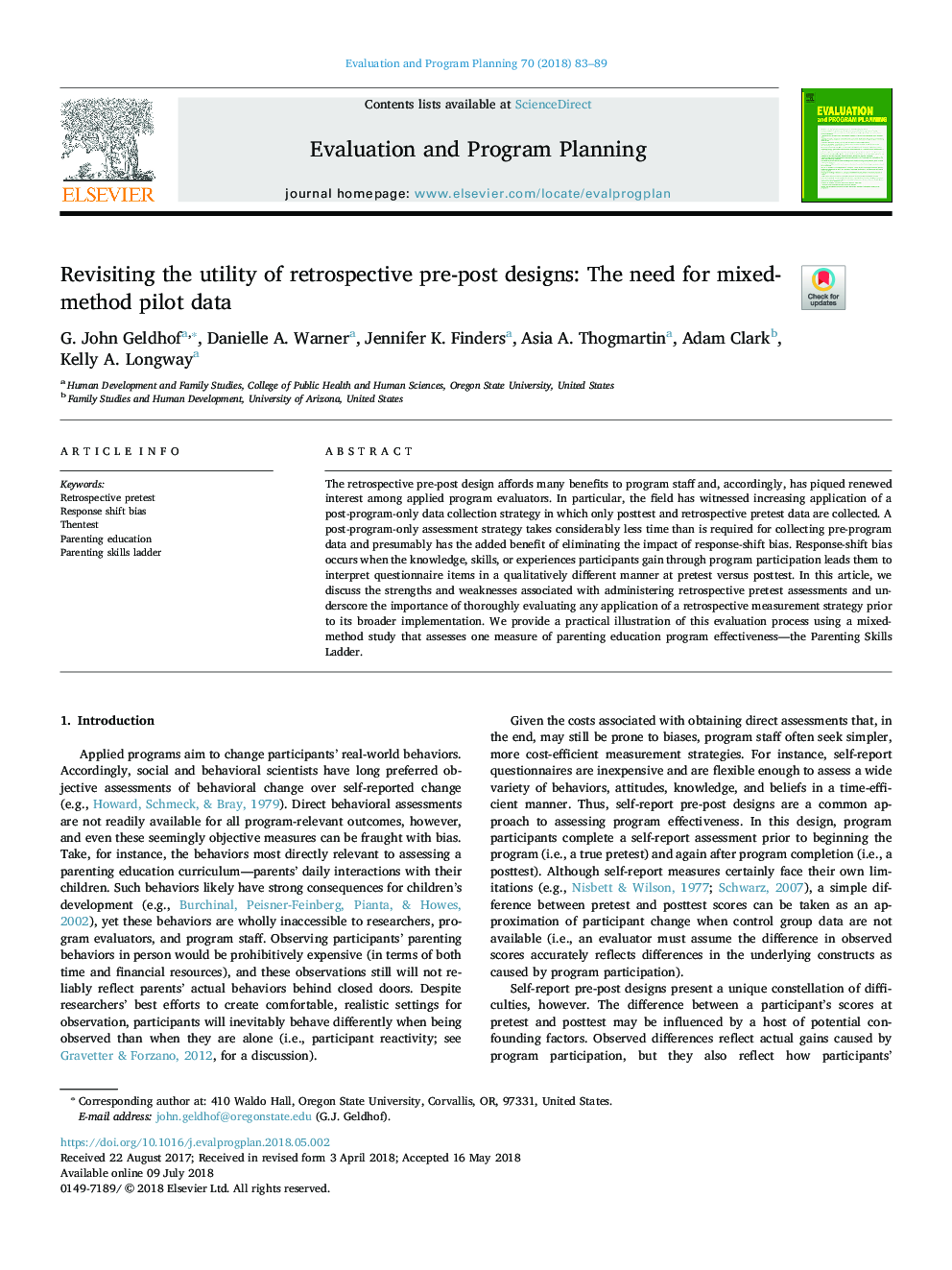| Article ID | Journal | Published Year | Pages | File Type |
|---|---|---|---|---|
| 6791977 | Evaluation and Program Planning | 2018 | 7 Pages |
Abstract
The retrospective pre-post design affords many benefits to program staff and, accordingly, has piqued renewed interest among applied program evaluators. In particular, the field has witnessed increasing application of a post-program-only data collection strategy in which only posttest and retrospective pretest data are collected. A post-program-only assessment strategy takes considerably less time than is required for collecting pre-program data and presumably has the added benefit of eliminating the impact of response-shift bias. Response-shift bias occurs when the knowledge, skills, or experiences participants gain through program participation leads them to interpret questionnaire items in a qualitatively different manner at pretest versus posttest. In this article, we discuss the strengths and weaknesses associated with administering retrospective pretest assessments and underscore the importance of thoroughly evaluating any application of a retrospective measurement strategy prior to its broader implementation. We provide a practical illustration of this evaluation process using a mixed-method study that assesses one measure of parenting education program effectiveness-the Parenting Skills Ladder.
Keywords
Related Topics
Health Sciences
Medicine and Dentistry
Public Health and Health Policy
Authors
G. John Geldhof, Danielle A. Warner, Jennifer K. Finders, Asia A. Thogmartin, Adam Clark, Kelly A. Longway,
